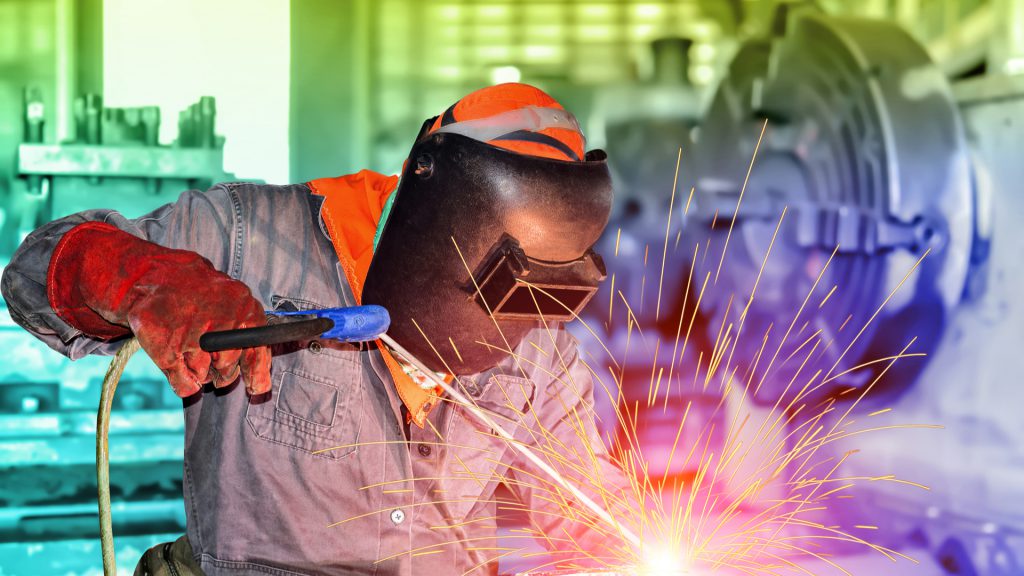
Published May 3, 2019
Friday’s job numbers are marvelous for President Trump. The headline unemployment rate is now the lowest since 1969, and the aggregate 263,000 job gain was nearly 50 percent higher than economists had forecast. And most importantly for Trump, the biggest winners are the same people whose cause he championed: Americans without four-year college degrees.
Observers have long noted Trump’s support among the less-educated, especially among whites. At the outset of his presidency, the big question was whether they would vote for him again if he did not deliver what he had promised: better economic times for them. The data clearly show that he has.
Unemployment, for example, has declined most over the past year among high school graduates, a key pro-Trump group. It stood at 4.1 percent in April 2018 but declined to 3.1 percent in Friday’s release. This occurred at the same time that more high school-educated workers re-entered the labor force. The employment-to-population ratio for workers 25 and older, which simply counts how many people have a job as a share of that group’s total population, rose from 54.7 percent to 55.9 percent in the past year alone.
People with disabilities are also reaping the benefits of this economy. Unemployment among this population dropped from 8 percent last April to 6.3 percent now, showing that in a hot job market, employers seem willing to make accommodations and offer higher wages to bring these people back to work.
The Social Security Administration, which pays disability insurance to most previously employed people who develop a disability, corroborates these data. The number of people receiving federal disability insurance through Social Security has risen for years in good times and bad, but the rate of growth slowed in President Barack Obama’s second term. That trend accelerated under Trump, and today nearly 300,000 fewer people receive disability checks than at the start of Trump’s term.
Wages are also going up above the rate of inflation for the first time in years. Indeed, in the past year, wages have been rising fastest for the lowest-paid workers. Similar trends are playing out among workers with less education. During the Clinton, Bush and Obama years, wages rose faster for workers with four-year college degrees than for those with only a high school education. But that gap was gone by April of last year. Since then, wages have risen at roughly the same rate regardless of education. Again, the Trump economy is increasingly delivering for exactly the people he said it would.
The wonder in all of this is why Trump isn’t more politically popular. Some of this is surely due to the man himself. His conduct during the 2016 campaign excited millions but alienated others, and the booming economy has not yet changed their minds.
Some of it, though, is surely because of Trump’s own errors. He simply does not talk about the economy as much as one might expect an incumbent with a record like this. He also continues to focus significant time and attention relitigating issues that place attention on his character, such as the Mueller report, or on highly divisive issues, such as immigration.
A large part of politics is framing the question to present to voters, and here Trump helps his adversaries by making his character of prime import. It’s human nature to try to clear your reputation when you feel you’ve been smeared. What Trump doesn’t seem to grasp is that he can more effectively rehabilitate his overall reputation by shifting the political discussion to other topics.
One wonders whether, at some point, the economic boom will be so huge that it will drive opinions on its own. Once Democrats settle on a nominee, voters will have to make a choice: Do they stick with the guy they’ve got, warts and all, who has contributed to such good times? Or are they willing to take the risk that the next president, even if he or she is a better person, will screw things up with a new agenda?
One election model from Alan Abramowitz, a political scientist at Emory University, suggests the economy will be the winning factor. His “time for change” model has a solid track record in predicting the outcome and direction of presidential races, and data he published last month show that, so long as the economy continues to grow at a 2 percent clip, Trump should be a favorite for reelection even if his job approval rating is as poor as it is now.
Indeed, it’s even better than that for Trump. The model calculates an average gain of 2.5 electoral votes for every one-point Trump shaves off of his net job disapproval. According to the model, even if gross domestic product growth slumps to 1 percent, Trump could win the minimum 270 electoral votes he needs for reelection by lowering his net job disapproval rating to 7 percent. Right now, that number is around 10 percent.
Media attention is focused on the Mueller report and other congressional investigations. But if the economy keeps its momentum, even that or Trump’s failure to trumpet his success might not prevent him from winning a second term.
Henry Olsen is a Washington Post columnist and a senior fellow at the Ethics and Public Policy Center.




